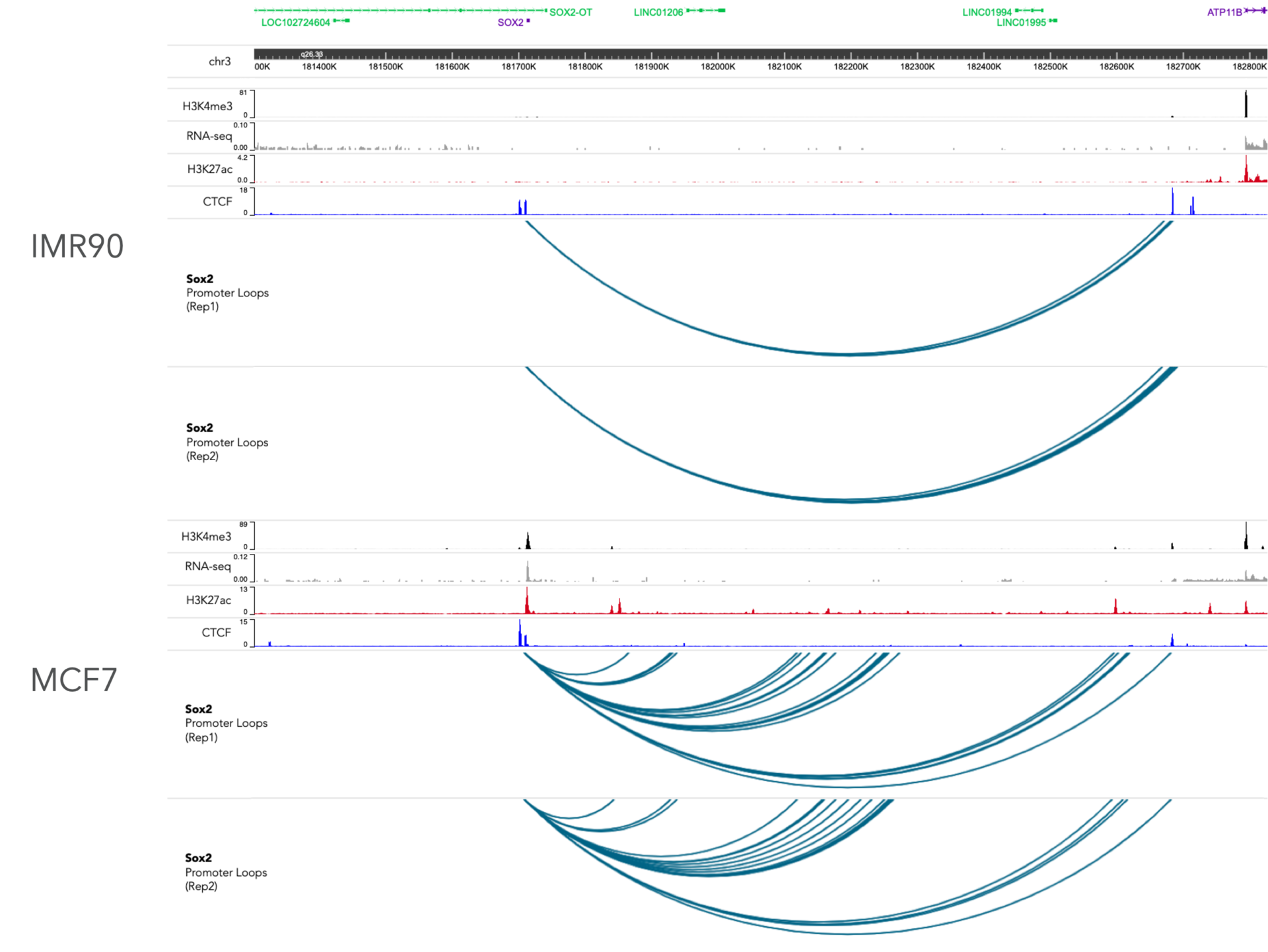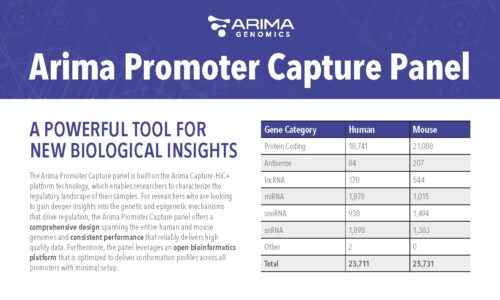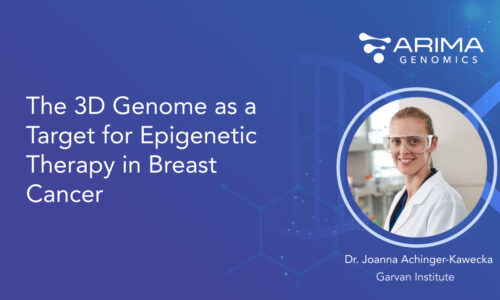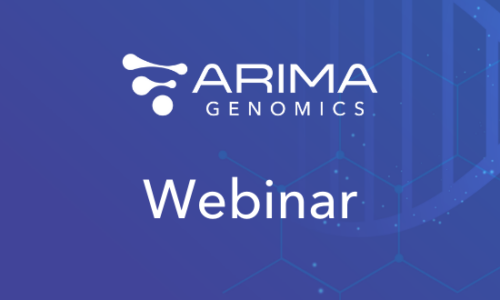Giorgio G. Galli, PhD
Group Leader, Oncology Drug Discovery Biology, Novartis Institutes for Biomedical Research“Hi-C is a powerful tool for conducting genome-wide analyses. We used Hi-C to narrow down the window of the scRNA-seq data and were able to successfully dissect a transcriptional regulatory network and identify the function of non-coding elements of cancer cells.”
Matija Snuderl, MD
Director of Molecular Pathology and Diagnostics, NYU Langone Medical Center“Using Arima Hi-C technology and the new FFPE sample preparation method and bioinformatics tools we’ve been widely successful in detecting structural variants in a variety of tumor samples. We are hopeful that additional insights gained with this approach will lead to improved understanding of disease mechanisms and, ultimately, the development of new therapeutic options for people with cancer.”
Michael Quail
Principal Scientific Manager of DNA Pipelines, Wellcome Sanger Institute “The newer Arima kits are being used because we found them to be robust across a range of tissue types from diverse vertebrate and invertebrate species. Kit robustness to a diversity of samples is an essential requirement for the Darwin Tree of Life Project.”
Toshi Shioda, MD, PhD
Primary Investigator, Massachusetts General Hospital Center for Cancer Research and Associate Professor of Medicine, Harvard Medical School“Although my undergraduate researcher, Bianca Cordazzo, a Harvard sophomore, is a motivated quick learner and had a little bit of experience in general lab practice before joining my lab, she was a novice technician of molecular biology. I would not have asked her to construct Hi-C libraries if the
Arima-HiC kit were not available. Bianca found this kit easy to learn, and it actually worked in her hands. Bianca analyzed data obtained from the Hi-C libraries constructed by herself, and both she and I were delighted to find clear and reproducible TAD boundaries displayed on our computer screen.”
Caitlin Castanada
Graduate Student, Texas A&M“I really thought it was quite easier compared to other Hi-C methods we evaluated, and y'all's QC checks made me feel a lot better about the library preparation throughout the process.”
Hiruy Meharena, PhD
Postdoctoral Fellow at Massachusetts Institute of Technology“We are pleased with the ease of the Arima-HiC workflow and the improved data quality for topological domain and chromatin looping analysis. The expanded support for low input is a significant feature, as it allows researchers to perform Hi-C across precious samples such as rare cell populations or clinical samples that were previously precluded from Hi-C analysis.”
Melissa Fullwood, PhD
Assistant Professor, Nanyang Technical University“We can get a good Hi-C library with sufficient coverage from sequencing one HiSeq lane. With our previous methods we needed three or more lanes to get sufficient coverage.”
Phil Ewels
Head of the Genomics Applications Development, SciLifeLab“The Arima HiC kit has worked well in our testing and provided excellent quality genome scaffolds at extremely low sequencing depths. The Arima support team have been very knowledgeable and extremely quick to respond.”
Changhoon Kim, PhD
Chief Technology Officer, Macrogen, Inc.“The ability of Arima-HiC kits to deliver greater insight with less sequencing cost will be critical in enabling more researchers to leverage Hi-C technology for understanding gene regulation within the three-dimensional context of the genome.”
Eileen Furlong, PhD
Head of Genome Biology Unit – European Molecular Biology Laboratory (EMBL)“We have been very happy with the
Arima-HiC kit. The Arima-HiC protocol is days quicker than our previous lab’s protocol. Altogether, better quality data for less effort.”
Yin Shen, PhD
Principal Investigator, University of California, San Francisco“We have been homebrewing HiChIP because it provides critical insights that were previously obtained from performing separate Hi-C and ChIP-seq experiments. Arima-HiChIP generated superior data quality and reproducibility even with our most challenging, terminally differentiated, neuronal samples, where our homebrew version previously failed, thus saving us from substantial repeat costs.”
Tamas Ordog, MD
Professor, Mayo Clinic“We have been very pleased with the performance of the
Arima Hi-C/HiChIP kit. It has improved reproducibility and overall quality while saving us time and sequencing cost. We particularly value the straightforward quality control steps and the ease of use. The Arima Technical Support Team has also been outstanding. Overall, a great value.”
Peter Scacheri, PhD
Professor, Case Western University School of Medicine“We are pleased with the informative nature and quality of the Arima-HiChIP data. Not only do we observe intrachromosomal cis-regulatory interactions across cancer genomes, but also interchromosomal ectopic cis-regulatory interactions on rearranged chromosomes. We think this data will help better delineate the relationship between genetic and epigenetic driver events in cancer.”
Pier Lorenzo Puri, MD, PhD
Professor, Sanford Burnham Prebys Discovery Institute“Enriching for active chromatin features through
HiChIP with H3K27ac or H3K4me3 enables our discovery of high-resolution chromatin looping events that facilitate gene control in muscle stem cells during the transition from a state of quiescence to their commitment toward differentiation into regenerating myofibers, during muscle regeneration in healthy conditions, aging, or diseases such as muscular dystrophies. The combined analysis of this HiChIP data with our genome-wide Hi-C data is pivotal to our understanding of not only the broader compartmentalization and topological frameworks that influence gene regulation, but also the finer resolution connections between specific
cis-regulatory elements.”
Lindsey Montefiori, PhD
Postdoctoral Fellow St. Jude Children’s Research Hospital “Hi-C technologies can be challenging to work with, but the Arima-HiC+ kit easily enabled us to perform H3K27ac HiChIP in both cell lines and limiting numbers of primary samples. We readily interrogated oncogenic structural variants in leukemia patient samples, including enhancer hijacking and de novo enhancer formations.”
Changhoon Kim
Changhoon Kim, PhD, Chief Technology Officer, Macrogen, Inc.“The ability of Arima-HiC kits to deliver greater insight with less sequencing cost will be critical in enabling more researchers to leverage Hi-C technology for understanding gene regulation within the three-dimensional context of the genome.”
Gene Myers, PhD
G10K Council Member and Director at Max-Planck Institute of Molecular Cell Biology and Genetics, Dresden“Arima Genomics is an integral technology partner of the G10K consortium and Phase I of the VGP project. Arima was selected for Phase I based on the quality of their data, proven by their ability to generate reproducible and high-quality data despite variability in input sample quality and quantity. The long-range genomic interactions from Arima-HiC data is an essential component of our current strategy for the generation of chromosome-spanning reference assemblies.”
Daan Noordermeer
PhD, Group Leader of CNRS Chromatin Dynamics Group"When we tested Arima-HiC kit in our hands, we consistently got very high-quality libraries. Particularly, the fraction of interchromosomal reads is reduced."




